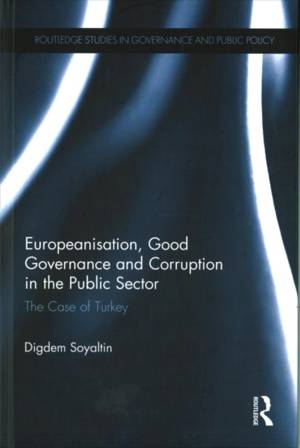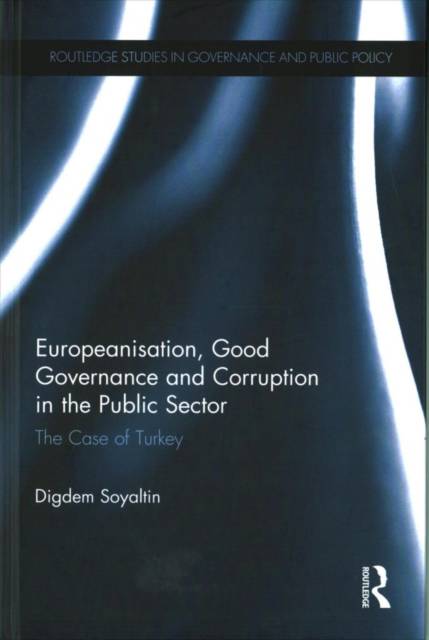
- Retrait gratuit dans votre magasin Club
- 7.000.000 titres dans notre catalogue
- Payer en toute sécurité
- Toujours un magasin près de chez vous
- Retrait gratuit dans votre magasin Club
- 7.000.0000 titres dans notre catalogue
- Payer en toute sécurité
- Toujours un magasin près de chez vous
Europeanisation, Good Governance and Corruption in the Public Sector
The Case of Turkey
Digdem SoyaltinDescription
When and to what extent external actors, especially the EU, contribute to induce legal and administrative changes and help domestic authorities address the disconnect between good governance standards and corrupt practices? Comparing external promotion of anti-corruption norms and provisions in civil administration, public finance management and public procurement in Turkey this book identifies the domestic conditions under which external actors can affect real-world outcomes. Providing a comprehensive, empirical account of Turkey's fight against corruption, the book's cross-sectoral analysis explores the power relations between major political actors and bureaucratic state elites, and examines how structural administrative factors filter external pressure for anti-corruption reforms and determine the prospects for institutional change in the Turkish public sector. This welcome addition to literature on Europeanisation and external good governance promotion makes an important contribution to the academic and policy debate regarding the "politics" of anti-corruption reforms in Turkey.
Spécifications
Parties prenantes
- Auteur(s) :
- Editeur:
Contenu
- Nombre de pages :
- 188
- Langue:
- Anglais
- Collection :
Caractéristiques
- EAN:
- 9781138227378
- Date de parution :
- 28-06-17
- Format:
- Livre relié
- Format numérique:
- Genaaid
- Dimensions :
- 156 mm x 233 mm
- Poids :
- 402 g

Les avis
Nous publions uniquement les avis qui respectent les conditions requises. Consultez nos conditions pour les avis.






